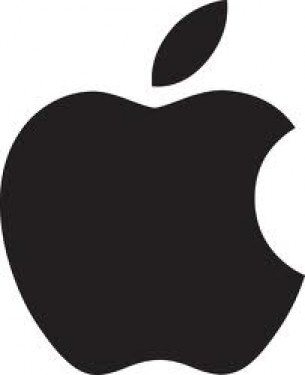For almost a decade, Research In Motion Ltd (NASDAQ:BBRY) was the dominant player in the smartphone market. At its peak in early 2009, it accounted for about 20% of the global smartphone market, and about half of the U.S. market.
But, that was before the widespread adoption of phones running operating systems from Apple Inc. (NASDAQ:AAPL) and Google Inc (NASDAQ:GOOG). Today, Research In Motion Ltd (NASDAQ:BBRY) is struggling to push its new BB10 operating system against the powerful duopoly that is Android/iOS.
Yet, it’s worth asking: is it really a duopoly at all? Apple Inc. (NASDAQ:AAPL) controls a big chunk of the U.S. market, but its global market share has been dwindling. In reality, the true story in mobile could be the emergence of Android as the sole dominant player — pushing aside iOS in the process.
The iOS/Android duopoly
As I’ve written previously, iOS and Android account for over 90% of the world’s smartphones, and 95% of its tablets. Given their enormous app and media ecosystems, they are fairly well entrenched players, and their displacement seems unlikely.
Moreover, the emergence of wearable computing should only bolster their dominance. Going forward, consumers opting for non-iOS/Android handsets will lose out on the ability to buy connecting devices (like smart watches).
Or an Android monopoly?
Some might dismiss this so-called duopoly. Although Apple Inc. (NASDAQ:AAPL) accounts for over 40% of the U.S. handset market, its global market share is just 17% — less than one-third of Android’s. In fact, in some markets (like Spain and Mexico) Apple’s market share is under 10%.
Further, Apple Inc. (NASDAQ:AAPL)’s share of the smartphone market has been declining — it’s down about 6% from 2012. Meanwhile, Android’s share has been steadily increasing, surging from about 60% to 75% in the last year.
Apple still dominates when it comes to apps
Yet, despite Android’s dominance in terms of raw market share, Apple’s iOS continues to get superior developer support. To be fair, it isn’t that noticeable (if it was, I wouldn’t use an Android phone), but iOS definitely has the edge.
Most popular apps eventually make it to Android, but only after they’ve been on iOS for awhile. Instagram was exclusive to Apple’s platform for months, while Mailbox still hasn’t made the jump (an Android app is in the works). The iOS version of Electronic Arts’ forthcoming Plants vs Zombies 2 will be available several weeks before the Android edition.
Android’s misleading statistics
Why haven’t developers flocked to Android? Simply put (contrary to the beliefs of Eric Schmidt), there are more important factors than raw volume. For starters, it’s easier to monetize apps on iOS. Apple’s users are more willing to pay, and it’s harder to load pirated apps on iPhones. At the same time, Android market share statistics can be misleading.
Apple Inc. (NASDAQ:AAPL)’s CEO, Tim Cook, often speaks about iOS’ superior usage statistics. Consumers with iOS devices are more likely to use them to shop online or browse the Internet. Overall, iOS devices tend to get used more often than their Android counterparts.
A big chunk of the Android devices out there likely aren’t being used as smartphones at all. Those with Samsung’s high end Galaxy devices probably use their phones as much as any iPhone user, but those phones represent a tiny portion of the total Android market.
Most of the Android phones in use are budget handsets (like Kyocera’s Rise or Pantec’s Burst). Owners of these devices likely use their handsets more as feature phones than as small computers.
Android is fragmented
This brings me to Android’s biggest weakness — it’s fragmented.
Although developers have more potential customers when they code for Android, they also have more potential problems. An app that works on one Android handset won’t necessarily work on another.
The game creators I’ve spoken to about the subject tell me that coding for Android is rarely worth it. Having to account for so many different hardware configurations and screen resolutions is a nightmare, and going through the trouble only pays off if your game is a guaranteed hit.
The importance of iOS to Apple
On a market share basis, iOS has been utterly overwhelmed by Android in the last two years. Going forward, that balance should only get worse. Even if one believes that iOS can steal customers from Android in the Western world, billions of consumers in third world nations simply can’t afford to purchase an iPhone (unless the rumored budget iPhone is priced under $100, it will still be too expensive).
At first glance, this seems terrible for Apple Inc. (NASDAQ:AAPL). When an investor buys a share of Apple, they are more or less buying a share of the iOS ecosystem. Over 70% of the company’s revenue, and most of its profit comes from the iPhone and iPad, which are more or less electronic boxes containing iOS.
But given the software advantages iOS still enjoys compared to Android, Apple is likely to have a large, dedicated user base in the developed world for the foreseeable future.
Until Android becomes the first choice of app developers, Apple shareholders need not concern themselves with global market share. Even with a minority position, iOS can still be highly profitable for Apple Inc. (NASDAQ:AAPL) — as its Mac division has been, despite the fact that Windows PCs utterly overwhelm them in the marketplace.
Is Google benefitting from Android’s growth?
Then there’s Google Inc (NASDAQ:GOOG). Shares are up more than 70% in the last two years, but how much of that is from Android’s growth?
The amount of money Google makes from Android is debatable — Google maintains Android as an open source operating system, giving it away for free. Venture capitalist Roger McNamee has slammed Google’s strategy, calling it “profitless prosperity.” In fact, based on the company’s court case with Oracle, The Guardian estimated that Google made just over $550 million on Android from 2008-2012.
But Google Inc (NASDAQ:GOOG) does benefit from Android’s popularity — Android users are more likely to utilize Google’s web services. Android devices are tied directly to many of these including gmail, Google Docs, and Google+.
Unfortunately, Google doesn’t break out the exact profitability of each service; still, they’re the key to the company’s long-term success. The search giant warned last fall that the ongoing transition from desktop to mobile has weighed on the company’s advertising revenue, getting consumers to embrace its web services (via Android) should allow the company to profit in a post-PC world.
Should BlackBerry shareholders remain patient?
As for Research In Motion Ltd (NASDAQ:BBRY), CEO Thorsten Heins urged investors to remain patient on Tuesday. He continued to stress that the company was in the midst of a transformation, and that BlackBerry would return to profitability in the future.
While BlackBerry might find a future as a mobile services company — it has brought its Secure Work Space to iOS and Android, and plans to do the same with BlackBerry Messenger — it will be a bumpy road. As the very title of this piece suggests, the company’s fall from grace has been nothing short of spectacular, and the reception to its new BB10 operating system has thus far been lukewarm.
A host of analysts downgraded the stock last week, including analysts at Deutsche Bank, who warned that the company was having difficulty competing in the smartphone market. Deutsche Bank has a $6 price target on the company, implying over a 40% downside from these levels.
Android won’t crowd out iOS completely
Apple Inc. (NASDAQ:AAPL)’s mobile market share should continue to decline. And given Android’s ability to offer sub $100 phones in emerging markets, Android’s market share will likely increase further.
But that doesn’t mean that the mobile world will become a single-horse race. iOS continues to be the favored platform for mobile developers despite Android’s significantly larger market. As long as that remains true, Apple will have a large minority position in developed economies.
The article Is Apple About to Become BlackBerry? originally appeared on Fool.com and is written by Salvatore “Sam” Mattera.
Joe Kurtz has no position in any stocks mentioned. The Motley Fool recommends Apple and Google. The Motley Fool owns shares of Apple and Google. Salvatore “Sam” is a member of The Motley Fool Blog Network — entries represent the personal opinion of the blogger and are not formally edited.
Copyright © 1995 – 2013 The Motley Fool, LLC. All rights reserved. The Motley Fool has a disclosure policy.





